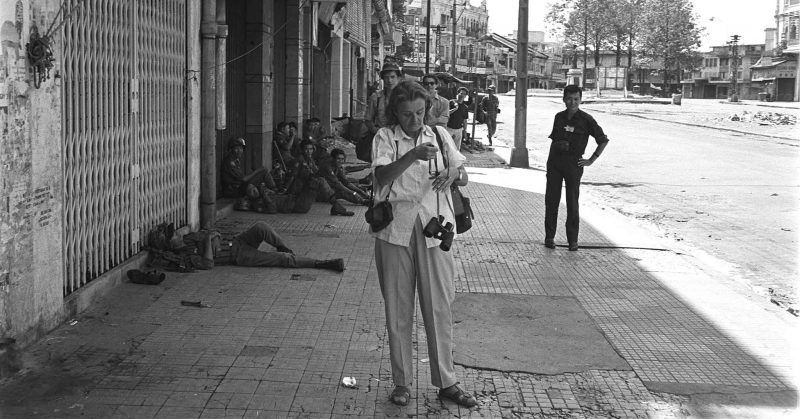Thanks to a gust of wind, Claire Hollingworth got the greatest news scoop of the 20th-century.
Hollingworth was the prominent female journalist of the war correspondents. She passed away in Hong Kong at the age of 105.
She was less than one week into her new job with the British paper The Daily Telegraph on a windy day in 1939. While driving alone from Gleiwitz, which was part of Germany at the time, to Katowice, Poland. She noticed as the wind picked up the corner of a tarpaulin which was blocking the German side of the valley from view.
Through the exposed opening, she was able to see “large numbers of troops, literally hundreds of tanks, armored cars and field guns.”
She could tell that the Germans were preparing to invade Poland, so she hurried to Poland and called her editor with the news.
The article was published on the next day, August 28, 1939. The British paper The Guardian called it the “greatest scoop of modern times.”
On September 1, 1939, the forces of Nazi Germany invaded Poland, kicking off World War II.
Over the next forty years, Hollingworth contributed to The Telegraph, The Guardian, The International Herald Tribune and The Wall Street Journal. She covered WWII in Eastern Europe, the Balkans, and North Africa. She also covered the Greek and Algerian civil wars, the fighting between the Arabs and Jews at the end of the British mandate in Palestine, and the Vietnam war, along with other conflicts.
Frequently in the line of fire, sometimes under arrest, Hollingworth was so capable of unearthing secret information that she was accused of espionage by the governments where she was reporting as well as the British government back home. She seemed to be for or against everyone in power throughout the world in the middle of the 1900s.
She was the first to interview Mohammed Reza Pahlavi when he became shah of Iran in 1941. She also had what is believed to be his last interview after he was deposed by Ayatollah Ruhollah Khomeini in 1979.
In 1965, she wanted to cover the hostilities between India and Pakistan, but journalists were banned from the front lines. Hollingworth simply called her old friend Indira Gandhi, who was the minister of information and broadcasting for India at the time.
Hollingworth was also one of the first journalists from the West to file regular reports from China. In 1973, she opened The Telegraph’s Beijing bureau.
In 1963, Hollingworth identified British intelligence officer Kim Philby as the “third man” in the Soviet spy ring that included Donald Maclean and Guy Burgess. In 1968, she uncovered the US plans for peace talks in Vietnam which began in Paris that year and concluded in 1973.
It’s been said that Hollingworth was happiest when she was traveling the world with a toothbrush, typewriter and, if necessary, a revolver. She slept in trucks, trenches, and occasionally buried up to her neck in sand to keep warm at night in the desert.
She would have continued with her career had her eyesight not have begun to fail twenty years ago.
In 1989, even though she was retired, she was seen in Tiananmen Square, climbing a lamp post to get a better view of the civil unrest. She was nearly 80 years old at the time.
She was born in 1911 in central England. Her father ran the family’s shoe and boot factory.
She attended domestic science college in Leicester at her parents’ insistence. She insisted that the experience made her hate anything to do with housework.
Still, she tried to settle into the life her parents expected of her. She became engaged to a young man but broke off the engagement soon after and announced that she was becoming a journalist.
Hollingworth attended the School of Slavonic and East European Studies in London and then the University of Zagreb in Yugoslavia.
She was working in Poland for the United Nations in 1939, helping refugees from Sudetenland escape the Nazi occupation of their land. The Telegraph heard of her work in Poland and hired her as a correspondent. On August 26, 1939, she flew to Warsaw to cover the prelude to World War II, The New York Times reported.
On September 1, 1939, she awoke to explosions and called her a friend at the British embassy to tell him the war had begun. The official British stance was that the war was weeks away.
She simply had to hold the phone handset out the window to convince them otherwise.
